Scott Morrison suffers historic defeat over asylum seeker medivac bill
After suffering a humiliating loss over medical transfers for asylum seekers, Prime Minister Scott Morrison has gone on the attack, claiming the vote proves Labor is weak on border security.
Work
Don't miss out on the headlines from Work. Followed categories will be added to My News.
After suffering a historic defeat, Prime Minister Scott Morrison has gone on the attack, claiming the vote proves Labor is weak on border security.
The PM today suffered a humiliating defeat over medical transfers for asylum seekers — despite 11th hour legal advice that it could be “unconstitutional”.
It makes the Morrison Government the first to lose a vote on a substantive piece of legislation in the lower house since 1941.
Mr Morrison told reporters: “What happened in the parliament tonight was proof positive that Bill Shorten and the Labor Party do not have the mettle, do not have what is required and do not understand what is necessary to ensure that Australia’s border protection framework and broader national security interests can be managed by the Labor Party.”
The PM said the election timetable remained in place and voters would go to the polls in May.
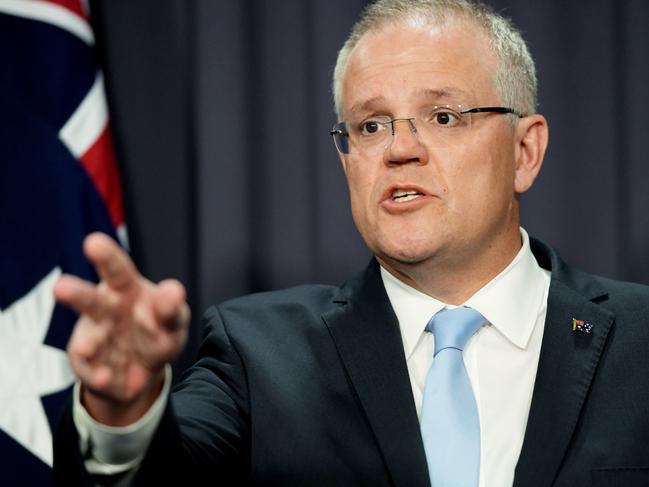
“This outcome was not unexpected to me and, as a result, we have been putting contingency planning in place and I’ll have more announcements to make about the actions and decisions the Government will be taking to address now the risk and the threat that Labor and Bill Shorten have created,” he said.
Under the negotiated amendments, the Home Affairs minister will have 72 hours to make a decision on whether to agree to a medical transfer.
If the minister rejects for it medical reasons, that decision can be reviewed by a medical panel, who can recommend it goes ahead.
Then it’s up the minister to reject it on medical grounds again, or national security grounds, or if the person has a substantial criminal record and poses a threat to the Australian community.
Home Affairs Minister Peter Dutton said the changes would start unravelling Australia’s border protection policies put in place when the coalition won in 2013.
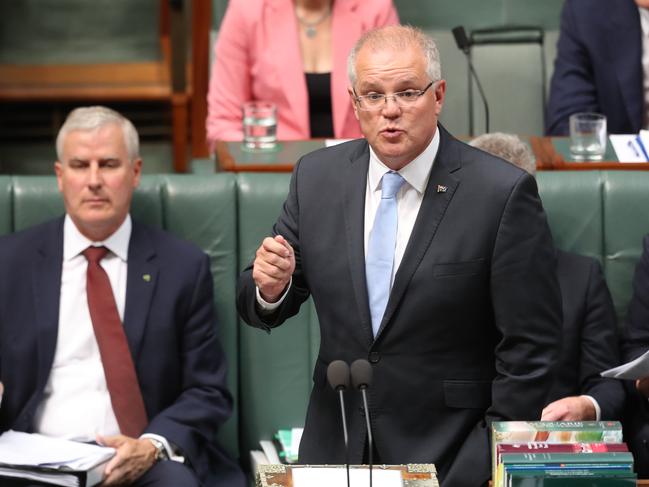
“I think there’s no question that people smugglers will be hearing very clearly that the policy in Australia has changed,” he told ABC’s 7.30 program. The doctors on the medical panel were due to be paid under the original proposal - but Labor’s late change to exclude remuneration means the bill cannot be rejected on constitutional grounds.
The amendments were originally made in the Senate, and under the constitution the Senate is not allowed to make bills increasing the spending of public money. The last time a government lost a vote on legislation on the floor of the house was in 1929, while in 1941 the government lost a vote on a budget bill. Both triggered snap elections.
MORE: Craig Foster’s explosive call to PM
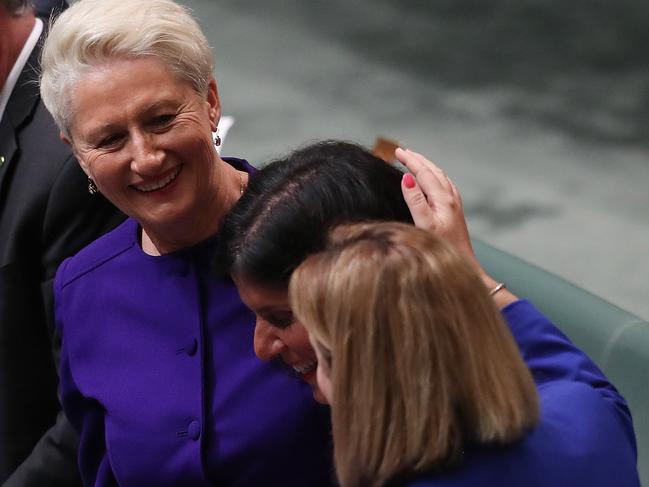
Labor and crossbench MPs voted to pass the legislation just before 6.15pm AEDT.
All amendments passed 75 votes to 74.
Constitutional law expert Anne Twomey told News Corp the government would be under pressure to resign or hold an election if it lost the vote after it warned the bill could be “unconstitutional”.
It came after Solicitor-General Stephen Donaghue provided confidential advice to the government that the bill would be “unconstitutional” because it has been amended in the Senate to involve expenditure for a new independent medical panel to oversee refugee transfers.
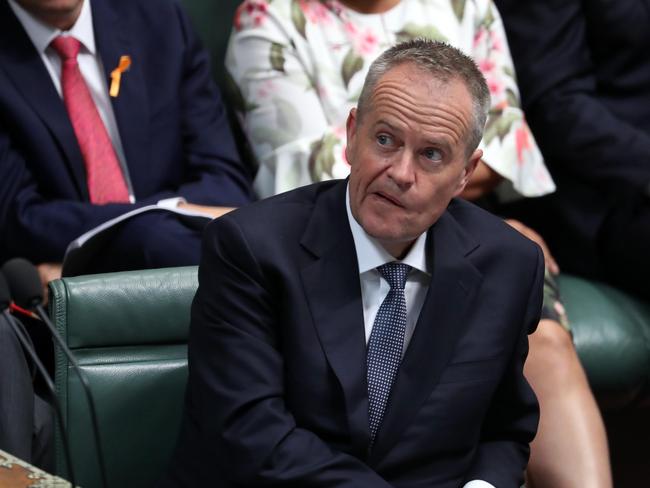
“Money bills” must come from the House of Representatives, not the Senate.
Professor Twomey said it was a “high-risk manoeuvre” to have declared the bill a “money bill”.
“If the bill is regarded as a money-bill, and is passed against the government’s wishes, then that is a very serious matter, because it would indicate that the government had lost control of the finances of the country, which is usually an indication that it must resign or hold an election,” the University of Sydney expert said.
“For example, the Fadden Government resigned when its budget was reduced by the nominal sum of 1 pound. Hence, it is a high-risk manoeuvre.”
Professor Twomey said the law would not be open to a High Court challenge.
“The High Court held in the Wilkie case regarding the postal survey on same-sex marriage that s 53 of the Constitution is not-justiciable, meaning that the courts will not enforce it and will not strike down a law on the basis that it breaches s 53.
“The High Court takes the view that it is up to the Houses to decide.”
But Labor says any constitutional issues have been removed by making simple changes to the amendments, such as removing remuneration for the medical panel.
CROSSBENCH SUPPORT FIRMS
“By all working together and putting refugees first, we’ve just made a huge difference,” Greens MP Adam Bandt said after the bill passed.
“The Greens worked with the crossbench and constructively held Labor to account, stopping too much power from remaining in Peter Dutton’s hands. I thank everyone who has fought so hard for so long for refugees.”
News Corp understands a deal had firmed between Labor, the Greens and crossbenchers before the government’s legal advice was unveiled after Question Time.
Key crossbencher Cathy McGowan had confirmed she would back the medical transfers bill after negotiations with Labor today.
“I intend to support this negotiated position when the legislation and amendments come to the House,” she said in a statement.
It’s understood Labor and the Greens had agreed to a 72-hour timeframe for the minister to consider referrals and were also discussing updates to the ‘character’ test.
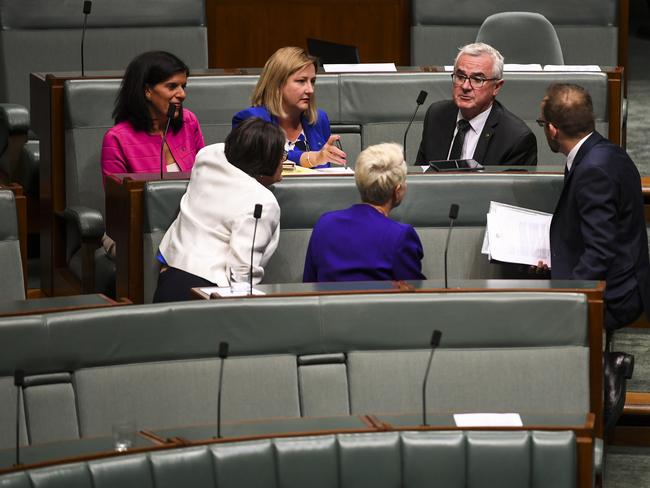
The Greens raised concerns this morning about three last-minute amendments to the bill that Labor MPs decided to make last night after Opposition leader Bill Shorten received a security briefing on it.
“On first look, Labor’s amendments don’t make the current terrible situation any better,” Adam Bandt earlier told News Corp.
“Labor is giving a lot of power back to Peter Dutton and it’s not clear that sick refugees will come to Australia any quicker than they do now.”
Without his vote, Labor won’t have the numbers to pass the bill.
The Greens are concerned about two of Labor’s amendments in particular; one which allows the minister to reject a medical transfer on character grounds and one which removes the timeframe the Home Affairs Minister has to consider a medical panel’s advice for each transfer.
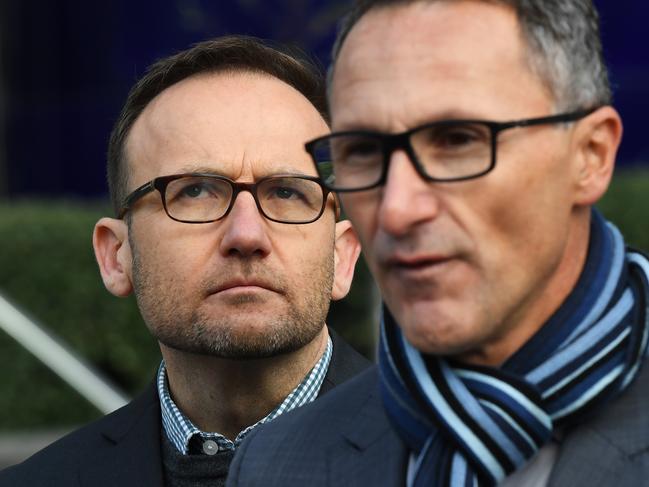
The current bill gives the minister 24 hours to consider a transfer recommendation.
Sources told News Corp ahead of Question Time Labor was open to implementing a firm timeframe.
The Greens are open to Labor’s third amendment, which would limit the medical transfer bill to existing refugees on Manus Island and Nauru.
The party hasn’t ruled out backing all of Labor’s amendments but are seeking urgent legal advice before the vote this afternoon.
Mr Morrison told reporters in Canberra this morning he would not compromise on any amendments to the bill.
“The bill is acceptable absolutely in no form and only weakens our borders,” he said.
The Prime Minister also faces another potentially humiliating vote on Wednesday on a push to add extra dates to parliament’s sitting calendar to deal with the banking royal commission recommendations.
Originally published as Scott Morrison suffers historic defeat over asylum seeker medivac bill


